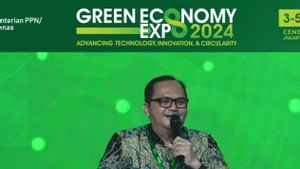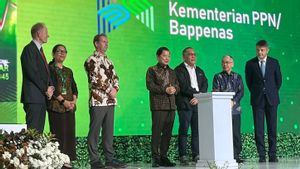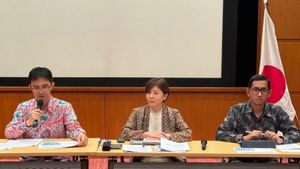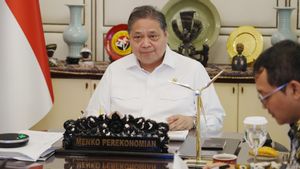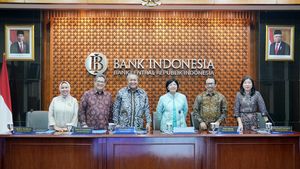JAKARTA - The Ministry of National Development Planning/National Development Planning Agency (PPN/Bappenas) said that as many as 27 national priority industrial areas have the potential to apply the concept of a green industry or Eco Industrial Park (EIP).
"There are several industrial areas that we have encouraged to become green industrial areas. Against 27 national priority industrial areas, the concept of green industry has the potential to be applied," said Deputy for Economic Affairs of the Ministry of National Development Planning/Bappenas Amalia Adininggar Widyasanti at the Green Economy Expo 2024: Advancing Technology, Innovation and Circularity at the Jakarta Convention Center (JCC), Central Jakarta, monitored online on Thursday, July 4.
The policy of developing green industrial estates or EIP aims to encourage the process of net production in the industry so that materials can be reused. Then, guarantee the quality of production and increase the value of the material economy.
Then, encourage sustainable green products or green products through accelerating the process of exchanging waste and resources and implementing industrial estate management that pays attention to economic, social and environmental aspects simultaneously.
Amalia said, one of the countries that already has a green industrial area is Denmark, namely Eco Industrial Park Kalundborg.
In his presentation, it was stated that Denmark managed to reduce 635,000 tons of carbon dioxide (CO2), then stored water up to 3.6 million cubic meters to recycle the remaining 87,000 tons of material.
"When we had the opportunity to go to Denmark to visit Kalundborg Industrial Park, it was one of the best industrial areas in the world that actually applied circular economic principles," he said.
During consultations and discussions with managers and one of the industrial companies there, Amalia said, they mentioned the key to implementing circular economic principles within the region is collaboration between industry and companies.
SEE ALSO:
"They see by collaboration, waste or waste from this one industry into raw materials for the second industry. Then, the second industry has waste being processed again by the third industry," he said.
It turned out, said Amalia, that in collaboration and applying the circular's economic principles, it could provide additional profit to these companies and become new business opportunities.
"This means that to implement a green economy, we should not be independent or independent. Especially to implement a circular economy, because to implement this circular economy we need collaboration across stakeholders, especially cross-companies collaboration," said Amalia.
Even so, Bappenas still appreciates a number of industrial companies that have started implementing the circular economy. "I appreciate Semen Gresik, Chandra Asri has implemented a circular economy very well," he said.
The English, Chinese, Japanese, Arabic, and French versions are automatically generated by the AI. So there may still be inaccuracies in translating, please always see Indonesian as our main language. (system supported by DigitalSiber.id)




